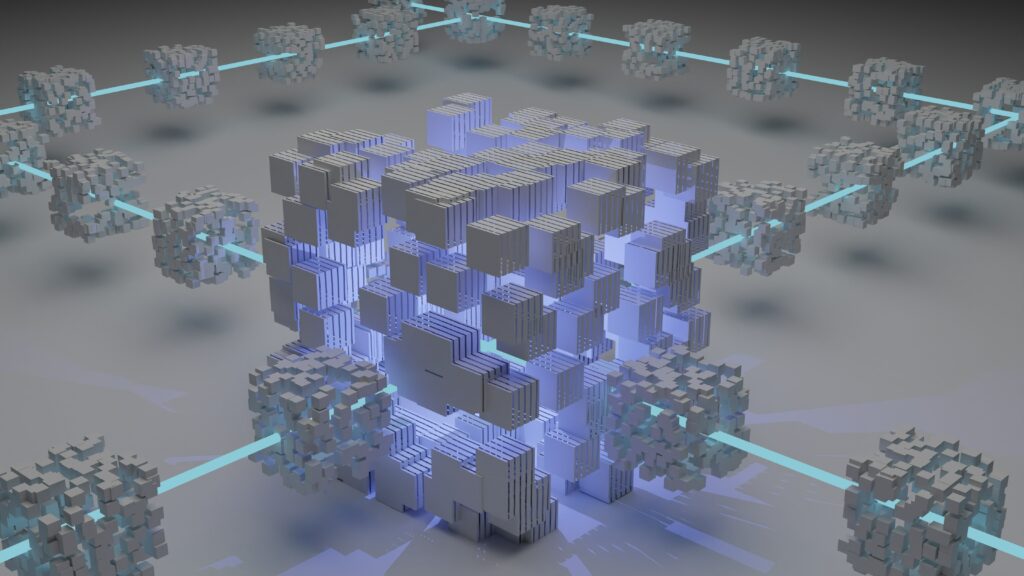Uses of the blockchain that you would not have imagined
Blockchain is an innovative technology that has the potential to transform many different marketplaces and the way we do business. While most people are familiar with using platforms to trade cryptocurrency, not everyone knows that this is built on the blockchain and the technology has many other uses. In this article, we’ll look at blockchain’s growing applications and the unexpected ways it can be used. We will look at the possible advantages and disadvantages of using blockchain in areas such as supply chain management, voting and healthcare.

Supply chain management:
Supply chain management is one of blockchain’s most exciting and potentially game-changing applications. The blockchain can be used to produce a decentralized and transparent record of a product’s supply chain, from its basic ingredients to its end user. This has the potential to improve supply chain efficiency, economy, transparency and trust. Food products, for example, can have their origin and quality recorded on the blockchain, giving buyers complete transparency in the production chain.
The blockchain can also be used to improve product traceability, making it easier to find and recall potentially dangerous or defective items. This is a big step forward for public safety and to avoid expensive recalls and lawsuits. Using blockchain, supply chain activities can be automated and optimized, removing the need for human record-keeping and the associated risk of error and fraud. Because of this, companies can cut their operating costs and become more competitive in the global market.

Voting:
The blockchain has also been used creatively in the voting industry. A voting system based on blockchain will be impervious to manipulation and fraud. This has the ability to significantly change how elections are conducted by increasing accessibility while minimizing the chance of fraud and manipulation. There would be no need for polling stations or paper ballots if the blockchain was used to create a digital voting system that people could use on their smartphones or computers.
The blockchain can be used to build a reliable and verifiable voting system by recording and verifying each vote. So if someone tried to tamper with the voting process, it would be much more difficult and voters would be able to more easily check that their votes were counted correctly. By using blockchain technology, voting can potentially be made more accessible to people with disabilities or mobility issues. This has the ability to motivate more individuals to vote and express their views.
Health Service:
Another exciting area of use for blockchain is in healthcare. Due to blockchain’s decentralized and secure nature, patients and doctors can benefit from a simplified approach to storing and transferring health information. This can have a wide range of positive effects on the healthcare system. By using blockchain technology, for example, we can make medical records more reliable and thorough, reducing the risk of human error. It can also be used to develop mobile health records that people can take with them to different clinics and hospitals.
Furthermore, the blockchain can make it more difficult for unauthorized parties to access or tamper with important health data, thereby improving privacy and security. If this were in place, patients would be less vulnerable to identity theft and other forms of medical fraud. Because the blockchain makes it possible to create smart contracts that run automatically when certain conditions are met, it can be used to automate and streamline the healthcare sector. A smart contract can be set up so that when a medical procedure is over, payment is sent to the doctor who was there.
The blockchain can also make the healthcare system easier to use by getting rid of the need for manual record keeping and allowing healthcare professionals to share data in real time. This has the potential to improve patient outcomes while reducing healthcare costs.
Actual property:
Another unexpected blockchain user is the real estate industry. The blockchain can be used to store and track property ownership and transaction data in a decentralized and transparent manner. This can benefit the property market in a number of ways. The blockchain can be used to improve the reliability and integrity of property records, reducing the likelihood of errors and legal disputes. This technology can also be used to digitize property records, making it easier for buyers and sellers to view and verify property information before entering into a transaction.
The blockchain can also be used to improve the transparency and security of real estate transactions by making it more difficult for other parties to access or edit transaction data. This has the ability to reduce the risk of property fraud and other forms of misconduct. The blockchain can also be used to automate and streamline the real estate industry by allowing the creation of smart contracts that automatically perform certain tasks when certain conditions are met. For example, when a buyer makes the final payment on a property, title can be transferred electronically via a smart contract.
The blockchain can be used to increase the productivity of the real estate market by removing the need for time-consuming and error-prone human record-keeping and allowing instant data sharing between all interested parties. If this happens, the time and money spent on buying and selling a home can be reduced.
Conclusion:
To summarize, blockchain is a powerful and versatile technology with potential uses far beyond what you can currently imagine. From supply chain management to voting to healthcare and real estate, blockchain is beginning to transform multiple industries and the way we do business. It is clear that blockchain technology is here to stay, and while it faces various challenges and limitations, the potential benefits are enormous. It is reasonable to believe that blockchain will be used in even more creative and surprising ways if it becomes popular in other fields.

